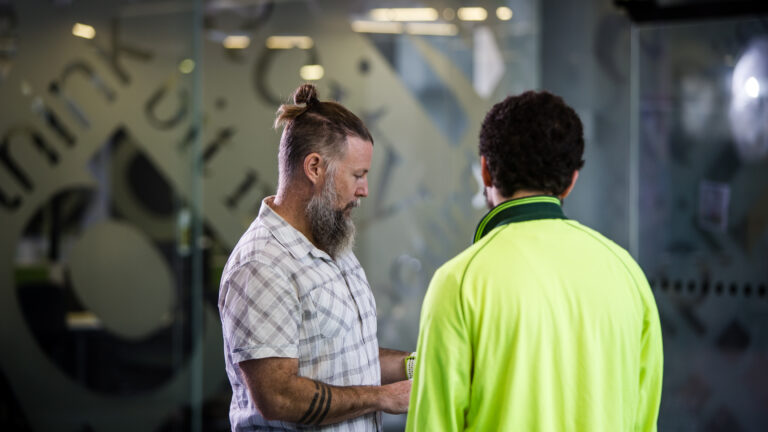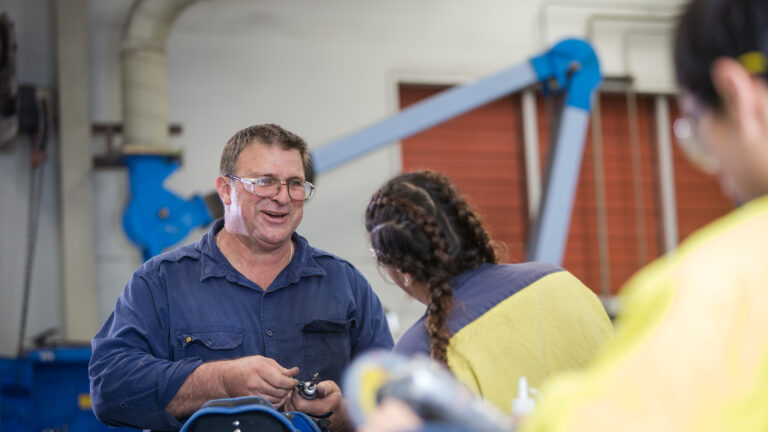Key Points
- There are many VET courses to choose from, so it’s important to do your research.
- Encourage your teen to choose a course that suits their interests and abilities.
- Find out what knowledge and skills your teen can expect to learn in a course.
- Find out what jobs and careers different courses can lead to.
- Support your teen to find out about the employment opportunities available to young people who have studied different courses and achieved VET qualifications.
- Look into whether a course will provide credit and/or pathways to further training or university for your teen.
- Know who to contact if you have questions about a VET course.
Vocational education and training, otherwise knowns as VET, is learning that directly relates to getting a job.
The VET system delivers education and training services for individuals at every stage of their work life, whether you’re a student, a job seeker or already employed.
VET also plays a significant role in senior school studies. School-based training allows students to study a recognised qualification while at school which can count towards their Queensland Certificate of Education (QCE) and/or Australian Tertiary Admission Rank (ATAR).
There are a range of training options available to help your teen achieve their career goals. Accredited training courses provided by registered training organisations (RTOs), such as TAFE Queensland, private training providers and some universities. Training is available in a number of different delivery modes, including in the classroom, in the workplace or online.
As a parent of a teen studying VET at school, or of a young person who plans to study VET when they leave school, it’s important to be informed about what your child should expect from their course. In this series, we explore what you need to know when choosing a VET provider, what a quality VET course should deliver, and what to do if you have concerns about the quality of training your teen is receiving.
Every young person is different and needs to find the learning pathway that works for them. If your teen is interested in doing a VET course while they are at school or after they finish school, considering the questions in this article will help them choose a quality course that suits their needs.
Does the course suit my teen’s ability and interests?
With so many interesting VET courses out there, it can be hard to choose the right one. A good starting point is for your teen to think about what interests them and where their strengths lie. While thinking about the future isn’t always easy, encourage your teen to:
- talk about the kinds of jobs they might like to do one day
- discuss their spark and see if that helps ignite some ideas
- think about their strengths, and the skills and knowledge they already have
- think about the way they like to learn, such as on-the-job training
- explore their interests using a career profile tool, such as myfuture’s my career profile
- research future job trends using sites like myfuture.
Does my teen understand the knowledge and skills they will learn?
Encourage your teen to find out as much as they can about different courses, and the specific knowledge and skills they should expect to learn from each course. You could suggest they:
- research and compare the content of different courses, and how the courses are delivered (e.g. online, face-to-face, using work placements)
- contact training providers to talk about the details of their courses
- speak to staff at (Guidance Officer, Head of Department – Senior Schooling or Industry Liaison Officer) to ask them about particular courses.
What jobs could the course lead to?
When choosing a VET course, your teen should consider what jobs or further training they will be able to do after they complete the course. Encourage them to:
- ask training providers what jobs and further training opportunities could arise from completing different courses
- speak to employers to find out the qualifications required and the qualities and skills they look for in potential employees
- read real-life stories about the different career pathways people have taken at websites like myfuture career stories
- ask staff at school (Guidance Officer, Head of Department – Senior Schooling, or Industry Liaison Officer) for guidance on courses that suit their needs and future plans.
It’s also good to remember that some jobs have other requirements (for example, a special type of license, worker suitability screening, vaccinations) in addition to completion of a relevant VET course.
Will the course provide pathways to further training and/or university study?
When your teen finds an area of study or training that interests them, they may want to do more learning in that area. Completing some VET courses will provide your teen with credit and/or pathways to further VET training or university study. It’s good to know if these kinds of options will be available down the track. Speak to a course provider to find out more.
Questions to ask when choosing a VET course
- What knowledge and skills will be taught in the course?
- Is the course linked to future job opportunities?
- Will the course provide credit and/or pathways to further training or university study?
- How will the course be taught (online? In person?)
- How long will it take to complete the course?
- How much bookwork will the course involve?
- Will the course involve any practical assessments or assignments?
- Is any special equipment required for the course?
- Is a uniform or special clothing (e.g. steel-capped boots)required for the course?
- Is literacy, numeracy and language support available?
More information
- MySkills.gov.au is a national directory of VET courses and providers.
- Myfuture.edu.au provides resources to explore career pathways and tools to develop self-knowledge to help with career decision-making.
- The National Careers Institute provides information for planning careers, including finding a course.
- The Queensland Department of Education website has useful information about VET in schools.
- The Queensland Department of Employment, Small Business and Training website has information about VET, courses, pathways, subsidised training and more.
- Find a training course or provider or eligibility for subsidised training at the Queensland Skills Gateway website.
- The Australian Skills Quality Authority (ASQA) website has useful information about finding VET courses and providers. ASQA is the national VET regulator.
Last Updated: 22 February 2024





